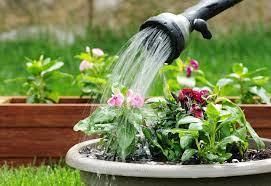A Watering Rhyme Class 4 Worksheet English
Q1: True or False.
(i) The time for watering the plants is during the afternoon.
(ii) Plants die when watered during the morning.
(iii) You should always water plants at the roots.
(iv) Flowers keep their mouths where people keep their feet.
(v) There is no need for soaking the earth around water.
Q2: Look for words in the poem which sound like the words given below.
(i) are
(ii) where
(iii) there
(iv) flour
(v) son
(vi) threw
Q3: Punctuate the following Sentences.
(i) on monday i will go to school
(ii) rahim ravi and raju are going to see the circus
(iii) sita where are you looking
(iv) the tailor went to the market mr singh
(v) laxmi why are you crying.
(vi) what is the colour of the sky
Q4: Short Question Answer.
(i) When should plants be watered?
(ii) What happens if plants are watered at noon?
(iii) Where should the water be poured for plants?
(iv) 'The flowers will have water for their thirsty ‘feet’!' What are the ‘feet’ that the poet is talking about?
(v) Write five words to which 'ING' Can be Added at the end to form a new word.
You can find Worksheets Solutions here: Worksheet Solutions: A Watering Rhyme
|
20 videos|224 docs|41 tests
|
FAQs on A Watering Rhyme Class 4 Worksheet English
| 1. What is the importance of watering plants? |  |
| 2. How often should I water my plants? |  |
| 3. What is the best time to water plants? |  |
| 4. How much water do plants need? |  |
| 5. What are some signs of overwatering plants? |  |





















